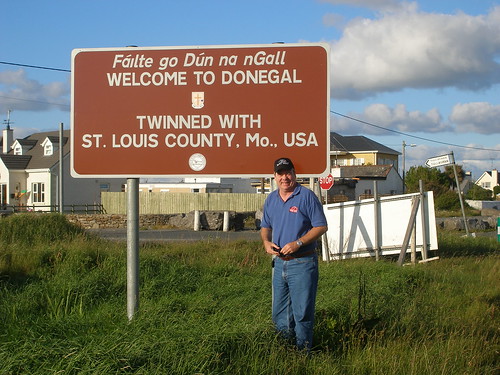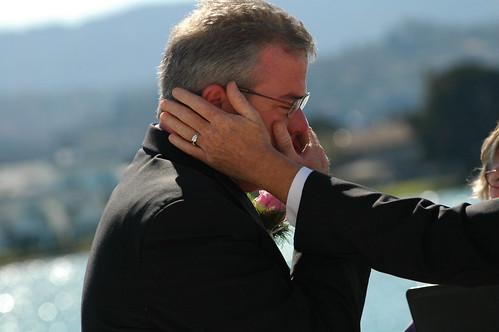
Our newest Christmas ornament, courtesy of my sister.
Santa Castro, save me !
quote:Over the course of the latter portion of the Answer Brief, Jerry Brown defines marriage as a fundamental liberty right, one of the most basic rights enshrined in the California Constitution. If I'm understanding his argument correctly, Jerry Brown is making the point that while fundamental rights can be limited via judicial decision, legislation or constitutional amendment they can not be denied without a compelling state interest, especially in the case of a minority or suspect class. In legal parlance, a suspect class is one that must be treated carefully by the law, so that the law doesn't discriminate against that class of people. As part of the In re Marriage Cases decision, gays and lesbians were determined by the Supreme Court to be a suspect class, based on the historic animus and discrimination experienced by them.
ARTICLE 1 DECLARATION OF RIGHTS
SECTION 1. All people are by nature free and independent and have inalienable rights. Among these are enjoying and defending life and liberty, acquiring, possessing, and protecting property, and pursuing and obtaining safety, happiness, and privacy.
quote:That's how the relevant section of the CA Constitution read prior to the passage of Proposition 8. Remember, Jerry Brown is speaking to the fundamental right to marry as being enshrined in the CA Constitution. Section 7 is the section that was amended by Prop. 8, as follows:
CALIFORNIA CONSTITUTION
ARTICLE 1 DECLARATION OF RIGHTS
SECT. 7 (b) A citizen or class of citizens may not be granted privileges or immunities not granted on the same terms to all citizens. Privileges or immunities granted by the Legislature may be altered or revoked.
quote:There is no Section 7.1/2/3 or 4. Section 7(a) speaks primarily to how the school system is to be run in a non-discriminatory way. Read 7(b) again, and you'll see that 7.5 is in direct contradiction to it--because it separates marriage from the provisions of section 7(b). Setting aside Section 7.5 for the moment, Jerry Brown asks the court to consider the following:
CALIFORNIA CONSTITUTION
ARTICLE 1 DECLARATION OF RIGHTS
SEC. 7.5. Only marriage between a man and a woman is valid or recognized in California.
quote:California's Constitution Secs. 3.2 & 3.4 call for broadly interpreted equal protection/access to all legal institutions for all residents; which is in turn specifically called out as being equally applicable to all classes of people. Section 3.3 is relevant in that it's one of the sections of the Constitution that allows for private, consensual relationships between same-sex couples. These Sections, in combination with Section 7(b), direct that the State must show an "Interest" if either the addition or removal of equal protection/equal access is to be allowed. The State's "Interest" in adding equal access has been demonstrated by the Legislative and the Executive branches, by the passage of various pieces of DPR legislation over the last several years, which expanded most of the significant rights found in marriage to same-sex couples. Thus, all of the constitutional underpinnings for the In re Marriage Cases decision already existed prior to the passage of Prop 22. They weren't created out of whole cloth. The Court, as a result, held that Proposition 22, by separating Domestic Partnerships and Marriages in to two separate entities, violated Section 7 and failed sections 3.2 & 3.4.
SEC 3.
(2) A statute, court rule, or other authority, including those in effect on the effective date of this subdivision, shall be broadly construed if it furthers the people's right of access, and narrowly construed if it limits the right of access. A statute, court rule, or other Authority adopted after the effective date of this subdivision that limits the right of access shall be adopted with findings demonstrating the Interest protected by the limitation and the need for protecting that interest.
(3) Nothing in this subdivision supersedes or modifies the right of privacy guaranteed by Section 1 or affects the construction of any statute, court rule, or other authority to the extent that it protects that right to privacy, including any statutory procedures governing discovery or disclosure of information concerning the official performance or professional qualifications of a peace officer.
(4) Nothing in this subdivision supersedes or modifies any provision of this Constitution, including the guarantees that a person may not be deprived of life, liberty, or property without due process of law, or denied equal protection of the laws, as provided in Section 7.














